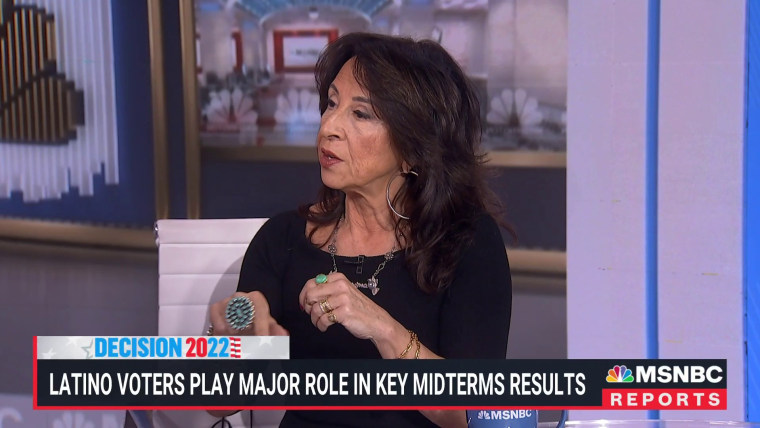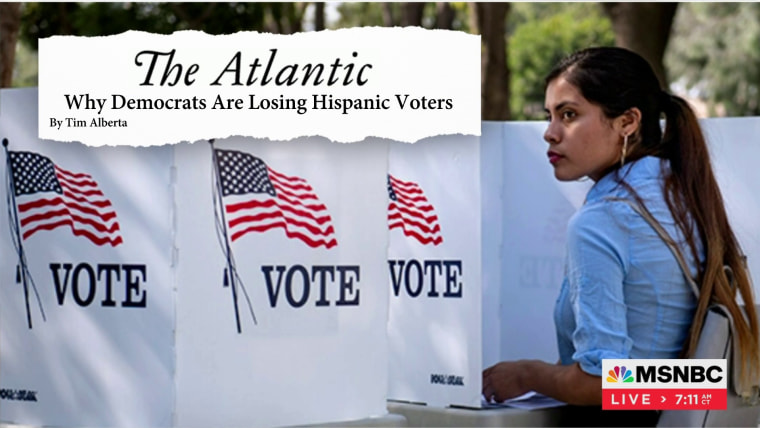Every time I say to myself that I will no longer explain why being anti-Latinx is just a political weapon of the American right, an opportunity arises to restate an undoubted truth: the vast majority of Latinos or Hispanics or whatever else we call ourselves do not care at all about such a manufactured debate.
Yet in all my years of publishing essays about the complex issues of Latino identity, I never expected an elected official to actually ban the use of “Latinx” in government documents. But Arkansas Gov. Sarah Huckabee Sanders has done just that, in an executive order issued the same day she was inaugurated.
The GOP is going all-in on how banning 'Latinx' will fight back against all those woke Latinos importing socialism from countries like Venezuela.
Proclaiming that “ethnically insensitive and pejorative language has no place in official government documents or government employee titles,” Sanders cited a Pew Research study and Spain’s Real Academia to announce “that within sixty (60) days of this Order, all state offices, departments, and agencies shall revise all existing written materials by replacing the terms ‘Latinx,’ ‘latinx,’ ‘Latinxs,’ or ‘latinxs’ with ‘Hispanic,’ ‘Hispanics,’ Latino,’ ‘Latinos,’ ‘Latina,’ or ‘Latinas.’”
To repeat, 57% of Latino respondents to a 2021 Gallup poll had no preferred term to describe themselves. It seems pretty established, too, that when asked about labels, mostly first-generation, older or Spanish-dominant Latinos have a much greater negative feeling towards Latinx, while younger, second- or third-generation English-dominant Latinos (and especially Latinas) are more open to understanding new labels that challenge previous identities. Identity is personal, and nobody needs to answer why one identifies one way over the other.

Still, identity has and will always be politicized, and Sanders’ Latinx ban speaks to what will become a new tenet of U.S. politics: Both Republicans and Democrats will continue to refine their messages to the country’s growing Latino electorate.
Banning Latinx in Arkansas is a political strategy, and if one were to consider that Arkansas’ Latino population has grown an incredible 38% since 2010 and that close to 19% of the population is of Latino origin, Sanders is responding to an Arkansas future that is more Latino, testing to see whether such actions will mean votes for Republicans in 2024.
The extremist wing of the Republican Party will continue to hype up such a strategy, even though there will be plenty of Latino, Latina and Latinx critics who see right through it.
Right now, the GOP is going all-in on how banning Latinx will fight back against all those woke Latinos importing socialism from countries like Venezuela. The obsession with Latinx is the Latino version of the hysteria surrounding critical race theory, as Sanders’ “Executive Order to Prohibit Indoctrination and Critical Race Theory in Schools’ proved. The extremist wing of the Republican Party will continue to hype up such a strategy, even though there will be plenty of Latino, Latina and Latinx critics who see right through it.
“It is something that seems to be tied to things that [Republicans] object to, which is really anything that prioritizes marginalized people and marginalized points of view,” author Ed Morales told NBC News.
We should not be surprised that a former member of the Trump White House, who also played a key role in spreading MAGA politics daily to outlets all over the world, is using this moment to remind the media that Latinx is indeed a political topic and that Republicans will continue to fight this culture war in the name of all that is good in America.

To many Latinos in the country, such a message has some appeal. In their view, the fear of the American Dream being sabotaged by communism is where the heart of the country’s politics is at and there is no way a bunch of Latinx-using activists will destroy that.
But I still believe that most Latinos would snicker that a Latinx ban has gotten this much attention, while at the same time they would not care about why we must continue to have these conversations about identity. For years, some in our community have fought back at not having government define how we identify. As the debate surrounding “the invention of Hispanics” has evolved, so has what it means to be Latino in the United States. Those terms will likely change again because the U.S. Latino population is still fairly young, and it is still hard to determine if the last years of such division and xenophobia will impact the next generation.
Nobody can truly predict how those debates will unfold, but it’s worth reminding Latino voters that this is the same Sanders who during her time as White House press secretary, defended cruel zero-tolerance family separation immigrant policies by saying it is “very biblical to follow the law” and has continued the same tired and stale messages that demonize and dehumanize migrants, portraying them as “problems” and “criminals.”
Focusing on Latinx bans might win the new governor or Arkansas a few easy political points to satisfy those Latinos who get worked up about a label they don’t even need to use, but that doesn’t really mean anything. The vast majority of Latinos aren’t listening because, in the end, they understand that identity is never fixed and will always be complex. Nobody will be able to ban that.

